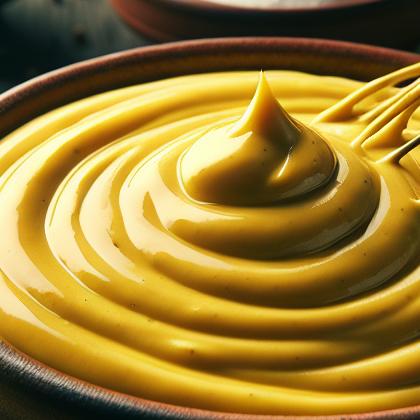Showing results for 'Dijon mustard'
close
Dijon Mustard

Dry mustard is used in food preparation, and can be mixed with water to use as a condiment. In its dry form, powdered mustard lacks potency; the addition of water releases the pungent compounds. The pungency of mustard is always reduced by heating; if added to a dish during cooking, it gives less pungency than if added afterwards.
Dijon mustard Properties:
| Food Property | Type | Description |
|---|---|---|
| Flavor Profile | Sour | Dijon mustard has a strong sour flavor due to the presence of vinegar. |
| Salty | Dijon mustard has a salty taste. | |
| Aroma | Volatile Compounds | Dijon mustard has a pungent aroma due to the combination of ingredients like mustard seeds and vinegar. |
| Texture | Creaminess | Dijon mustard has a creamy texture. |
| Color | Natural Pigments | Dijon mustard has a yellow color due to the use of mustard seeds. |
| Nutritional Value | Macronutrients | Dijon mustard is low in calories and contains negligible amounts of protein, fat, and carbohydrates. |
| Micronutrients | Dijon mustard may contain small amounts of vitamins and minerals, depending on the brand. |
Food Pairing App - Version 1.2.0
